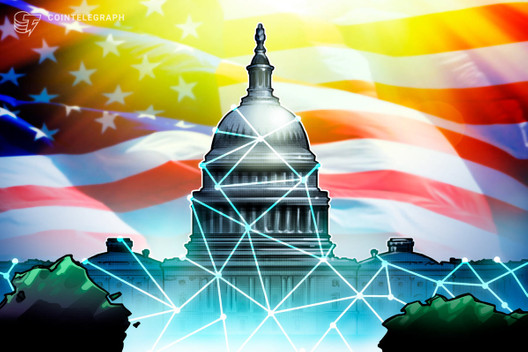US legislators approve bills for study of blockchain in commerce
The two bills will now go to the House of Representatives for a vote.
The Committee on Energy and Commerce has just approved two pieces of legislation to spur more in-depth analysis of blockchain technology in government, clearing the way for their vote in the House of Representatives.
In an online debate moderated by Chamber of Digital Commerce founder Perianne Boring on Sept. 9, Democratic Representative of Florida’s 9th District Darren Soto announced that after “nearly two years of pushing,” the Committee on Energy and Commerce had passed the Digital Taxonomy Act. In addition, the committee approved the American COMPETE Act. Both pieces of legislation will now go to the main floor of the U.S. House of Representatives for a vote.
The Digital Taxonomy Act, if passed in Congress, would instruct the Department of Commerce in consultation with the Federal Trade Commission (FTC) to conduct and submit a study on the state of blockchain technology to various committees in the House of Representatives and the Senate. It would also require the FTC to report on recommendations regarding unfair and deceptive practices related to digital tokens.
The American COMPETE Act would require the Department of Commerce to review this study and report to Congress on the state of artificial intelligence, quantum computing, blockchain, and new related industries.
“It’s a first step,” said Soto, who sponsored the first bill with Rep. Brett Guthrie (R-KY) and Rep. Doris Matsui (D-CA). “We definitely want to get into more substantive legislation. But for right now the appropriations and getting the first reports done by the Department of Commerce, the FTC, the DoD, and others are going to acclimate Congress because a lot of folks don’t understand the technology.
Soto is one of the main figures shaping crypto policy inside of Congress. He has often expressed concern that the U.S. government’s lack of understanding of emerging technology is holding the country back from building a competitive cryptocurrency sector.
“That’s our biggest obstacle. It’s not partisanship — it’s ignorance that we battle against. These reports familiarize everybody.”
However, the congressman also cited a few legislative victories. In August, the U.S. Department of Agriculture proposed amending its rules on organic products to include implementing blockchain technology to trace its supply chain. Soto also joined several other members of Congress to request the IRS not overtax rewards from Proof-of-Stake blockchains.
“We have long-term goals working with the digital chamber to get a cryptocurrency center of excellence in the Department of Commerce to really help work on the various different ways blockchain can be utilized,” said Soto. “Whether it’s in financial transactions, keeping communications secure, whether it’s keeping data secure.”
Soto practices what he preaches. The congressman also announced that he would be accepting crypto campaign contributions. His website currently shows the option to give up to $2,800 using BitPay.




